Step into the character Malika's room on Good Trouble, Freeform's edgier spin-off of The Fosters, and hanging on the wall is the iconic photo of Elizabeth Eckford, who in 1957 (as part of the Little Rock Nine) became one of the first students of color to attend Little Rock Central High School even as a mob of primarily white women hounded her. Malika resides at the Coterie, the communal living space where the Adams Foster sisters Callie and Mariana land upon their arrival in downtown Los Angeles post-graduation, and her picture of Eckford is an ever-present reminder to viewers that her work as a Black Lives Matter activist is part of a continuum of civil rights work. And it can't be extricated from the intersections of who Malika is.
Like its parent show before, Good Trouble leans into topical issues and LGBTQ visibility. The Coterie brims with intersections of race, queerness, gender, and class. Malika, a woman of color who grew up in the foster system, embraces a few of those intersections as well as the heart of The Fosters --a show about finding and holding on to family -- perhaps more than any other new character on the series. On the show from three out executive producers, Joanna Johnson, Bradley Bredeweg, and Peter Paige, which also features an Asian lesbian character (Sherry Cola's Alice) and a groundbreaking bisexual male character, Gael (Tommy Martinez), Malika does not identify as part of the LGBTQ community. But Zuri Adele, the actress who plays her, does. And she says that the series has inspired her to bring her "authentic" self to the role.
"This is a great time [in TV], especially with Good Trouble. ... We're putting a bisexual character [Gael] on television who is multidimensional, and I think it's a great time for a bisexual actor like myself to also represent for the community," Adele tells The Advocate. "The show is holding [the characters], like the actors, also accountable to live authentically as who we are in our real life."
Even before Adele landed the role on the series (her first), which premiered in January, she knew it would be special. Not only had she watched and loved The Fosters, but at the audition, she could see that the producers were open to having various kinds of women step into Malika.
"We all looked really different. They were still finding Malika and I loved that. I loved seeing the diversity among black women and that they were really open to that because all the women in the waiting room, we expressed ourselves really differently," Adele says. "From our fashion to our hair to our voices. It was just cool to see that, Oh, Malika could be any of us. They're really breaking that ground."
"There has been a past of black women being caricatures in a way on TV," Adele adds. "It was so great to see so many different-looking women in that room."
Good Trouble's writers established Malika's identity as a Black Lives Matters activist straight away in the pilot when she squared off with Callie (Maia Mitchell), who began clerking for the conservative judge on the fictional but all-too-real Jamal Thompson case, in which police shot and killed an unarmed black man. Later in the episode, she revealed to Mariana (Cierra Ramirez) and Callie that she too grew up in the system, although, unlike them, she wasn't adopted (by nurturing lesbian moms, no less).
While Adele, a graduate of Spelman College (a historically black college for women), doesn't share Malika's past, she says she relates to her passion.
"I love her. She's the perfect character for me. We're so passionate about the same issues and we also have different upbringings, so I get to learn a lot," Adele says. "It's school and it's a way to channel my passions and then I get to learn from her. I get to channel myself in her. I get to use my authentic voice."
Authenticity is something Adele keeps coming back to, crediting Johnson, Bredeweg, Paige, and even the network Freeform with inspiring the cast to be true to themselves in their art and lives. It's why, although she never had the "aha" coming-out moment that's depicted in so many movies and TV shows, she's wide open about her bisexuality being another thread in her intersectionality. She's also aware that expressing herself openly is important for those who don't feel represented.
"I'm so proud to be a part of the LGBTQ-plus community and I know that with this platform that I have, it's really important to make sure that all of my intersectionality is represented, because that's the one part. You can see that I'm a woman, you can see that I'm black, but you can't necessarily see that I'm queer," Adele says.
While Good Trouble is such a nurturing space to express one's true self that Adele and her castmates became so immediately close that they've been in a group text chain since they began shooting, Adele is conscious of the responsibility that comes with being out there and visible, as if a baton has been passed to her, she says.
"It's scary and it's also so right, Adele says. "There have been attacks on people who speak out for activism in their black bodies or queer bodies, and to be doing so on television definitely feels like an incredible responsibility and also allows me to know that I have to be really aware of my surroundings because there are still so many people who are not as progressive as we are and our fans are."
"It's like my ancestors passed me the baton and now I'm running," Adele says.
As Good Trouble's freshman season draws to a close -- season 2 is already in the works -- Malika came face-to-face with her derelict mother in an emotional showdown last week. The episode peeled back the character's past and revealed that Malika and her brother entered the system after she called child protective services on her mom, who had been abusing drugs. While Adele says she continually learns from her character, the actress is also fast becoming a beacon for other queer women of color. Her open embrace of her identities mirrors that of celebrities like Janelle Monae, Tessa Thompson, Kiersey Clemons, and Sasha Lane, who are leading the way for LGBTQ representation.
"That's just what we do. We can't hold this in. It feels spiritual, and I don't mean religious. It feels like a spiritual thing that we can't hold in our truth for too long," Adele says of women of color who are authentic in their identity.
"Maybe we've felt silent in a lot of movements, so now our generation is saying, 'We're going to use our voices.' It's more important to us to use our voices because we know what it's like not to have been able to," she says.


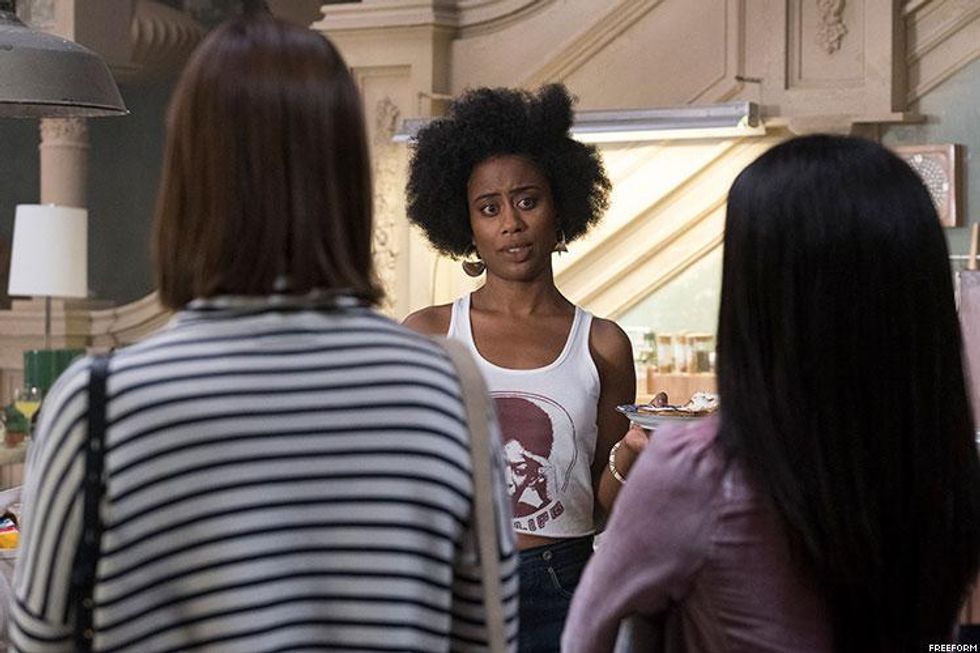
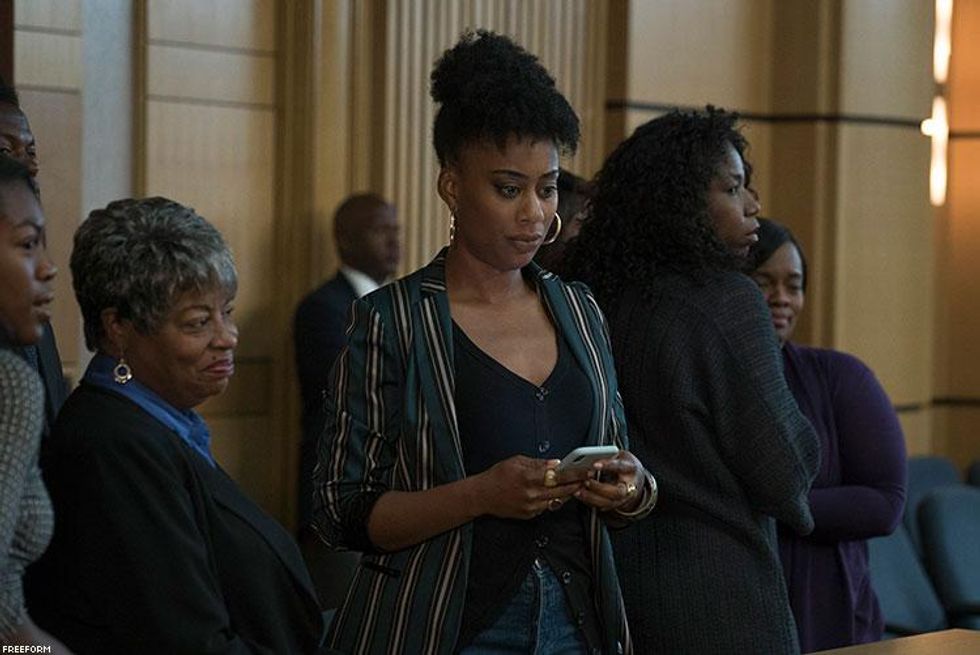
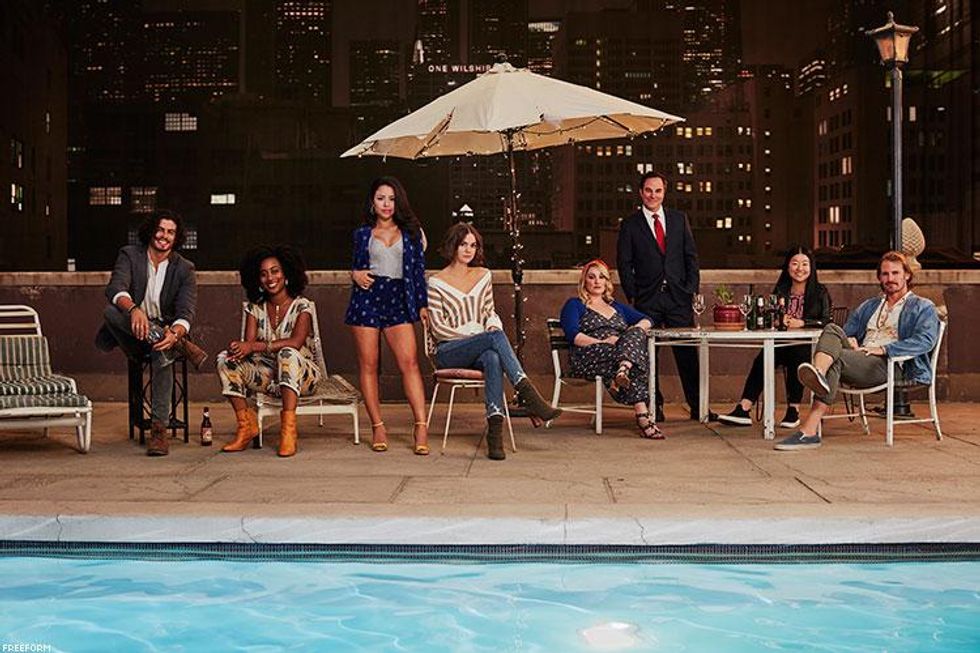




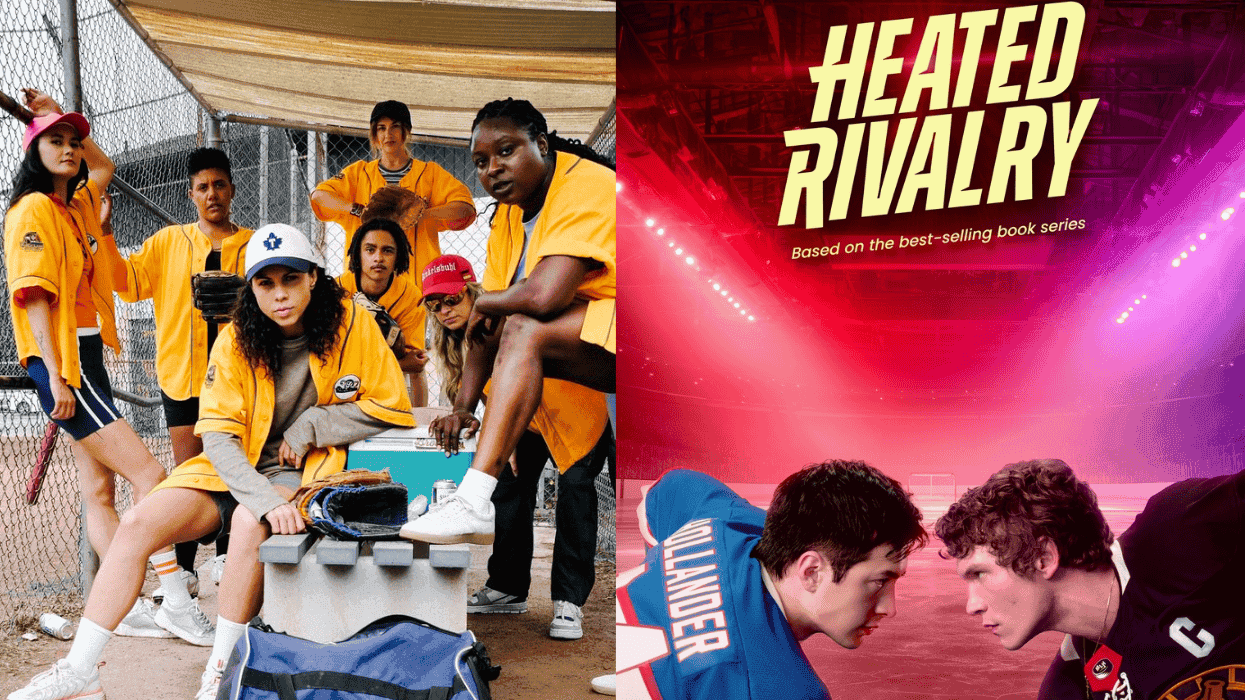



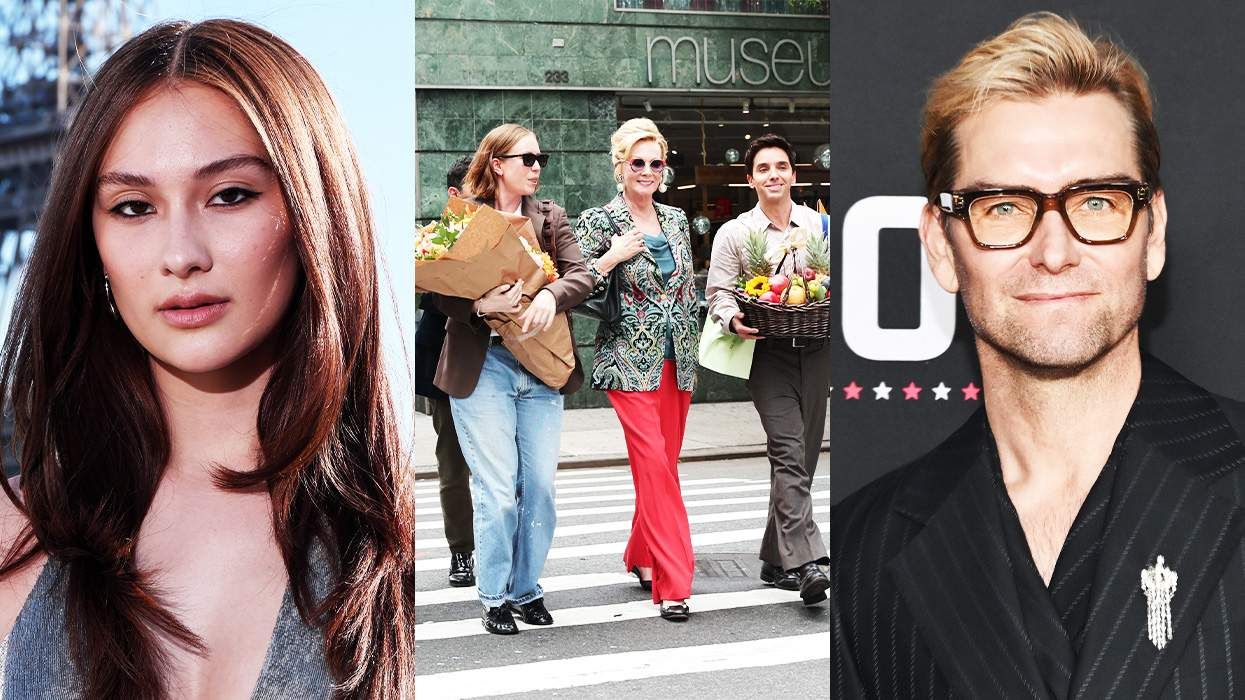





Charlie Kirk DID say stoning gay people was the 'perfect law' — and these other heinous quotes
These are some of his worst comments about LGBTQ+ people made by Charlie Kirk.